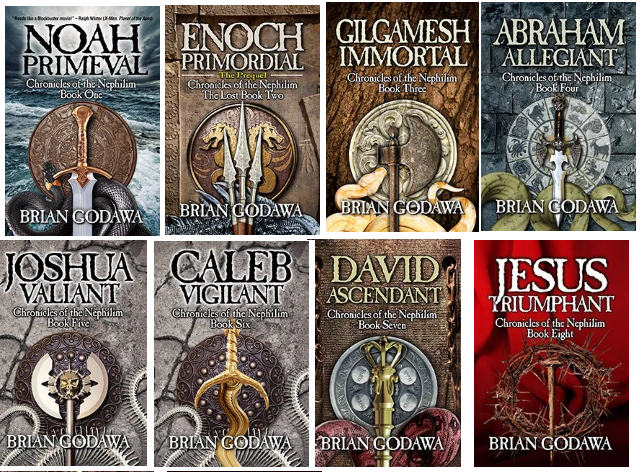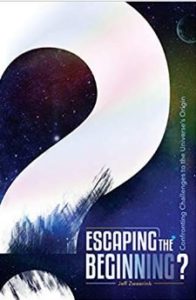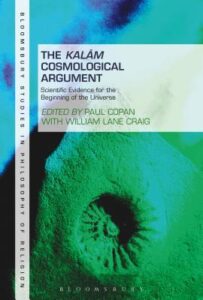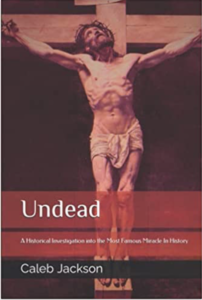The Chronicles Of The Nephilim are a series of novels, so rather than review one at a time, I thought I would include the reviews to all 8 novels in this one single blog post. None of the reviews are very long, so it makes even more sense to combine them all. These reviews are the ones I wrote on GoodReads and copy/pasted from GoodReads.
1: Noah Primeval
Awesome!
I really enjoyed this novel by Brian Godawa. I started with the Chronicles Of The Apocalypse novels, so you could say that I’m reading these as prequels to those. I have not read the rest of the books in the series yet, but I did enjoy this one. Godawa’s aim in these novels is to retell Biblical history with a strong Focus on Divine Council theology, the Nephilim, and their war with the seed. The seed of Eve, that is.
Godawa understands the Nephilim to be the giant hybrid offspring of angelic beings whom first Enoch calls the Watchers with human women. These Angelic beings were members of yahweh’s divine Council, but rebelled, descended to Earth, took on human form, and in remembering the curse upon the serpent in Genesis 3:16, that through Eve would come someone who would crush the Serpent’s head as well as everyone who followed him, just decided that they were going to poison the human bloodline to prevent that chosen seed from coming into the world. Of course, from the New Testament we know that that chosen seed is Jesus the Messiah. Jesus conquered the serpent of Eden, also known as Satan, through his death on the cross and Resurrection. He conquered over the evil powers and he atone for all of our sins. We are no longer in the power of the evil gods thanks to Jesus’s atoning death and Resurrection.
Some of the content of this novel may seem really weird and bizarre to some readers who are not familiar with Divine Council Theology and second temple Judaism literature, that is why I am very glad that Brian godawa included 3 appendices in the back of the book that explains the biblical, exegetical, and ancient near Eastern oh, and second temple Judea background that informed him in writing the novel. I myself was was very familiar with it having read Michael Heiser books “The Unseen Realm” and “Reversing Hermon”, but I realized that a lot of Evangelical readers will probably be surprised to see the pagan gods of the ancient near Eastern religions treated as real in the novels, and things like Leviathan and Behemoth, and Chimera monsters showing up.
Like I said, this is the only book in the series that I have read so far, so I don’t know what the other ones in the series are like but I will get to to those very very soon. This is a fantastic novel, it is engaging, it is entertaining, and if you take the time to read the appendices, it’s educational. It will enrich your Theology of the Unseen realm and will change the way that you view idolatry and the way that God fought against it in the Old Testament narratives.
2: Enoch Primordial
Enoch Primordial is the second installment in Brian Godawa’s “Chronicles of the Nephilim” novel series. However, the events of this book are chronologically prior to the events of the first book “Noah Primeval”. Therefore, I would recommend that you read this book before Noah Primeval if you would like to keep the story strictly chronological. It even says that it is a prequel on the cover of the book.
As I said in my review of Noah Primeval, this novel series is about The Descent of the Watchers on Mount Hermon, their plan to interbreed with human women in order to produce Angel / human giant hybrid offspring known as Nephilim. At first, the Watchers did this purely out of lust. But after having revealed that God had a plan to destroy the Watchers and Satan who was the serpent who tempted Adam and Eve to sin in the Garden of Eden, they decided to interbreed more with human women in order to poison the lineage of the “chosen seed”. That chosen seed, is Jesus the Christ, who traces his lineage back to Noah, Lamech, Methuselah, and Enoch.
Both this book and Noah primeval will be really weird to a lot of evangelicals who are not familiar with Divine Council Theology and the Quasi Divine view of the Nephilim. However, having followed Michael Heiser’s work for a couple of years I am very familiar with the theology in the novel. However for those who aren’t, in every single installment of The Chronicles of the Nephilim series oh, godawa has appendices that explains and defends where he is getting his ideas from. He’s not just Conjuring them up out of his head for the most part. Of course, since the Primeval history of Genesis (I.e the three novels before Abraham Allegiant) is especially brief and sparse in detail, he has to take a lot of poetic license was what was said and what was done. But the basic ideas and storyline is founded on solid Biblical exegesis and a knowledge of ancient near Eastern thinking and second temple Judaism.
One of the things I liked about Enoch primordial was the debate between Enoch and Satan in the Heavenly Court. Satan was trying to accuse God of all kinds of different injustices, and the arguments that he trotted forth or arguments that I have had to contend with out of the mouths of atheist Time After Time After Time In My Time as a Christian apologist. Enoch skillfully refuted all of Satan’s accusations of God being a tyrant, a misogynist, an animal abuser, Etc. Although, I didn’t agree with all of the answers that the novel Enoch gave because I don’t agree with the theology. For example, I do not take the inherited guilt view of Romans 5 so if I were in Enochs position I would have denied that God does in fact hold all of humanity accountable for what Adam and Eve did. Nevertheless, the novel Enoch did give very good answers to Satan’s problem of evil and other objections. I especially like the fact that Enoch and the son of man pointed out that if it weren’t for God, there would not even be a moral standard by which to judge God as immoral! Without God, there is no objective morality. Without God, all things are permitted. As the son of man said in his summary judgment at the end, in order to accuse God of Injustice, Satan had to be like a child who sits in his father’s lap in order to slap his face.
This novel series, and this book in particular, really held my attention. It is so full of action-packed battles between the “Giant Killers” (I.e Enoch, Methuselah, Edna, Betonosh) and the giant Nephilim, it is full of romance and heartfelt interactions between the characters, and an unexpected twist with Ohoya the nephilim, that I just could not put the book down. I finished the novel in 2 days because I just could not let it go. This book kind of feels like Lord of the Rings meets The Bible. If you’re into either of those kinds of novels and you also want Divine Council theology in an engaging narrative form, I recommend that you read this. I have said it before and I will say it again. Brian Godawa is the C.S Lewis of our time.
3: Gilgamesh Immortal
Brian Godawa has written another great installment to The Chronicles of the Nephilim series. This book picks up where Noah Primeval left off ( because the events in Enoch Primordial chronologically precede Noah Primeval and in my humble opinion, it should have been the first in the series rather than Noah Primeval).
I won’t give too much of the plot away other than that this continues the ongoing war between the seed of the serpent and the seed of Eve. Before the great deluge, Fallen Angelic Divine beings descended upon Mount Hermon, took human wives for themselves and mated with them which resulted in the hybrid quasi Divine beings known as Nephilim. Initially, the Angelic beings ( known as the Watchers in 1st Enoch) did this out of pure lust. As Genesis 6 indicates, it was because the Watchers/Sons Of God, found the daughters of men attractive. But eventually the Watchers started breeding Nephilim in an attempt to poison the blood lineage of God’s chosen seed, which we know in the New Testament is Jesus the Messiah. And we know from the New Testament that Jesus is death and Resurrection over through the powers of darkness and atone for the sins of humanity.
I was very surprised at how godawa was able to merge the Babylonian story known as the Epic of Gilgamesh with the Primeval history of Genesis and how it fit like a hand in glove with the way that Godawa told the narrative. In the novel, the Babylonian Upnapishtim is is the biblical Noah, and this man is the one whom Gilgamesh seeks out for eternal life. That’s all I’m going to say about the story because of you have not read either the Epic of Gilgamesh nor this novel, anything else I say might be considered spoilers. That said, I was surprised to find how Godawa was able to merge this Babylonian Epic and integrate and subvert it within the actual Biblical history.
Like all of Godawa’s novels, this novel is full of action, romance, drama, and occasional humor. There are epic battles, and I found myself enthralled with the story. Like all of his novel, there is an appendix at the back that explains the biblical and historical research that Godawa did which informed the novel. Unfortunately, the audio version of this book does not contain the appendix. That was something I found disappointing about this book and the previous one. The audiobook version of Noah Primeval had the appendices, but Enoch Primordial and Gilgamesh Immortal did not. Fortunately, there is an audiobook version of “When Giants Were Upon The Earth” which is a compilation of all eight appendices from all eight novels.
4: Abraham Allegiant
This is another great addition to The Chronicles of The Nephilim series, but in my opinion, Godawa goes a little too far describing the sexual sins of some of the characters. I mean, is it really necessary to read that Semiramus erotically groaned as her infant suckled at her breast or that “Marduk took his arm out of Enki’s anus”. I get that Godawa wanted to emphasize the depravity of the fallen Watchers and the pagans, but the images planted in the reader’s minds go a little too far at times and borders on X-rating. Other than that, it has an overall engaging story.
5: Joshua Valiant
Fantastic!
6: Caleb Vigilant
This was another great addition to The Chronicles Of The Nephilim series. I was pleasantly surprised at how prominent of a role Rahab was given in this novel. In The Bible, she only shows up in one brief episode. Israelite spies went into the land, went to Rahab’s inn, the spies hid in Rahab’s house, which was constructed into the city wall. The men Jericho’s king sent to seize the spies asked Rahab to bring them out. Rahab didn’t give them away in exchange for Israel sparing her life and the life of her family, which they did. But after this, Rahab disappears from the biblical narrative and doesn’t show up again except in genealogies and in Boaz’ reference to her in the book of Ruth (since Rahab was Boaz’ mother).
I won’t give too much away about the backstory that Godawa gave to Rahab as they would be spoilers, but initially, Rahab went by an entirely different name, and I didn’t even know that this character was the biblical Rahab until she ended up at Jericho and changed her name to that. It was a twist. I also liked the rationale Godawa gave for why Rahab chose the name Rahab, but I won’t give that away either. I’m worried that I’m saying too much as it is.
Moreover, Godawa deals with the moral issue of the extermination of The Canaanites in the form of Satan taking Yahweh to court in Heaven, something Godawa has done in prior novels such as Enoch Primordial and Abraham Allegiant. It was nice to see The Son Of Man refute the claim that so many have lodged against God. This courtroom scene was very much like a debate between a Christian Apologist and an atheist.
The novel, like so many others in the series, is full of action-packed fights between warriors and the Nephilim; the seed of the serpent. It’s got romance, drama, some comedy, everything you’d want in a compelling story.
7: David Ascendent
Another fantastic installment of The Chronicles Of The Nephilim series. I loved this one just like I loved all the books in the series. And like all of Godawa’s novels, while events are fictionalized and some liberties are taken, not once does anything occur that CONTRADICTS The Bible. For example, The Bible says that Saul was tormented by an evil spirit but it never says WHO that evil was. The biblical text leaves the evil spirit unidentified. Godawa gives a name to the spirit, a very significant name, a name that someone had earlier in not only the Chronicles series, but biblical history. I was surprised. Perhaps I shouldn’t have been given how huge of a role this evil man played while he was alive. However, I’m leaving his identity concealed so you can be as surprised as I am.
I think many of us will see ourselves in David. David struggled with the flesh and constantly felt like he had a foot in both worlds; the world of the ungodly and the world of the godly. David wanted so badly to obey God. He adored The Lord and wish he could be as righteous as he saw his friend Jonathan. But he struggled with keeping his sexual appetite at bay. The Bible, of course, records Davids piety and his moral failings (the Bathsheba incident most significantly) But The Bible is not a novel. You can only glean so much personality from Ancient Near Eastern historical records like 1 and 2 Samuel.
My only criticism is how graphic this novel can be at times. When Saul sent David to get all those Philistine foreskins for him, he cut off the full genitalia. Saul complained “I only told you to get the foreskin! You got the whole thing!” and David said “which includes the foreskin”. Later when the Sons of Rapha discover the slain philistines, they discovered an Israelite was among them. One of them (I can’t remember who it was) mocking cited the “eye for an eye and tooth for a tooth” part of Torah, cut off the Israelites genitals and shoved them into his mouth, saying “consider this a cock for a cock.” Was that really necessary? I mean, I know Godawa wants to emphasize how depraved the Philistines were (especially the Rephaim giants), but GEEZE!
Overall, this was a great novel. I can’t wait to read Jesus Triumphant! 😀
8: Jesus Triumphant
I enjoyed this book. I enjoyed the whole series.
Share this:
- Share on Facebook (Opens in new window) Facebook
- Share on X (Opens in new window) X
- Print (Opens in new window) Print
- Email a link to a friend (Opens in new window) Email
- Share on Pinterest (Opens in new window) Pinterest
- Share on Reddit (Opens in new window) Reddit
- Share on LinkedIn (Opens in new window) LinkedIn
- Share on Tumblr (Opens in new window) Tumblr
Discover more from Cerebral Faith
Subscribe to get the latest posts sent to your email.





Did you notice the Calvinistic theology in Godawa’s books? Thought you would mention it in your review.
Yes, unfortunately, I have. Thankfully, it doesn’t come up too often.
I see, I think you may have referred indirectly to it by the line: ” I do not take the inherited guilt view of Romans 5…”, although not sure how it is related to Calvinism. Still its great that you enjoyed his work despite your theological differences. Personally, I quite enjoyed them too.
Well, the inherited guilt interpretation of Romans 5 isn’t inherently Calvinistic. I don’t know of any Calvinist who would deny that reading, but one can be a card carrying Arminian and say “Yeah, Adam’s sin transferred guilt to all of us because he was our representative”.
.
But in the last two novels in the series, he said some things, and had characters say some things, that sounded reminiscent of T.U.L.I.P theology. Like when the thief on the cross in the afterlife asked why he was saved but his brother wasn’t, and that it seemed kind of unfair, Jesus basically said “Well, I chose you, and that’s my right.” If I were writing the novel, I would have had Jesus say “Well, you responded to the Spirit’s call and your bother didn’t. But salvation was available to both of you.” He does draw all men to himself after all (John 12:32) but some people resist, unfortunately (Acts 7:53, Luke 13:34).
Hi there! So, going by your replies in the comments, I take it you’re of a different theology from Mr. Godawa. Same here. It’s good to see that one can disagree with the theology of a Christian and yet still enjoy their works. I think Godawa has a gift for storytelling and is exceptional with his research and study. He’s managed to create amazing tales with these great figures and shed light on the lesser talked about aspects of the Bible. I dare say that while I don’t agree with his theology, he has helped me understand the Bible and made it easier to read. So, I feel a lot of good came from reading these books.